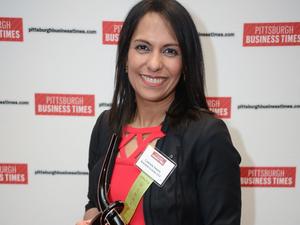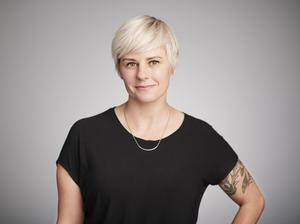
Pittsburgh's tech community is heating up.
In just the past few months, two of the region's most promising homegrown tech companies — educational platform Duolingo Inc. and autonomous vehicle company Aurora Innovation Inc. — have had IPOs, a noticeable change in what has until recently been a decade-long drought for tech firms in Pittsburgh going public.
These exits represent a sign of success for Pittsburgh's startup community. While listing on a stock market is more of a final marker that a startup is no longer a startup, Pittsburgh's harboring of tech-based emerging companies is also on the rise.
In the most recent quarter, Pittsburgh tech firms saw more capital investment than the prior two quarters combined at over $121 million and bringing the region's total to $228.04 million across 71 companies this year, according to data from Pitchbook-NVCA. The region's tech job openings also grew in the most recent quarter, at about 6,690 open roles, up 2% from the 6,570 open roles the year before. And in September, global research firm Startup Genome ranked Pittsburgh No. 23 globally in its 2021 list of Emerging Startup Ecosystems, which looked at factors like startup growth and activity, innovation and research, capital availability, talent and support for companies, among others.
But Pittsburgh's youngest companies aren't just raising money and hiring workers. They're changing the very way the world works, developing technologies capable of improving human health and even business itself.
To better inform you of the diverse and unique work being done in the region's startup scene, Pittsburgh Inno has launched its inaugural list of Startups to Watch — an annual list that profiles startup companies poised for significant developments over the course of the next year.
This list isn't meant to be interpreted as definitive, but rather a glance at the wide array of talent and ideas that permeate the region's budding startup scene and the companies that are poised to have a breakout year to come.
In other words, these are Startups to Watch in 2022.
Agot AI

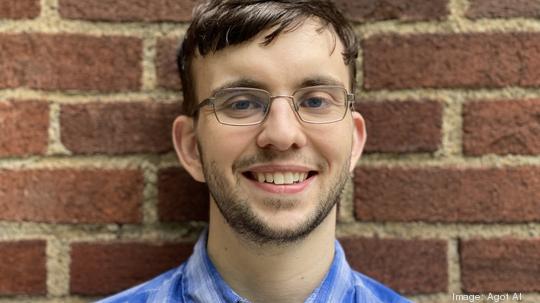
While attending Carnegie Mellon University, Evan DeSantola and Alex Litzenberger founded Agot AI in 2019 to streamline and reduce mistakes in the quick-service restaurant industry.
The startup’s technology uses cameras that can be converted into sensors capable of collecting data to monitor and track the various stages of food preparedness. Its Kitchen Awareness and Interventional Order Accuracy technologies track an order throughout its journey — from being placed online or in a drive-thru all the way to the customer’s pickup — all while constantly monitoring items as they’re prepared, which gives it the capability to alert line workers of any needed corrections.
The company recently closed a $10 million seed funding round with Continental Grain Co., Kitchen Fund, Grit Ventures, Yum! Brands Inc. and others, bringing its total funding to roughly $15 million. Now approaching nearly 40 employees, revenue-producing Agot AI plans to use the funding to grow its product and engineering teams while further expanding its reach for current and future clients.
“We’ve seen a lot of very exciting developments as a result of some of the pressures the pandemic has put on operators, and this has formed really as a catalyst for these operators to explore all the ways that they can improve their operations,” DeSantola said. “Agot provides an amazing set of labor and interventional tools that track orders. … Agot is going to be increasingly quality checking, especially at the enterprise brand levels, these orders over the next year. Our hope is that by the end of this year, we’ll have scaled out a number of our early enterprise customers.”
Apollo Neuroscience
Apollo Neuroscience Inc., co-founded initially as a research effort in 2014 by husband and wife duo Dr. David Rabin and Kathryn Fantauzzi, produces wearable touch therapy devices that help the body recover from stress through the transmission of low-frequency inaudible sound waves.
These sound waves, which the user can feel as small pulses on either their wrist or ankle, depending on where the device is applied, help to calm the nervous system and, according to research efforts Apollo conducted, can reduce a user’s stress levels and improve their sleeping habits. The product is available in a limited capacity to the public via preordering on the company’s website for $349. To date, Apollo has raised at least $13.9 million in funding, according to documents filed with the U.S. Securities and Exchange Commission, including multiple investments from local seed investor Innovation Works.
“If I think about what we’ve seen is that the company executes on its vision and plans; it’s seen growth,” Jim Jen, chief operating officer at Innovation Works, said. “Really, while they’ve been growing this year, we think that next year they might be poised for even more explosive growth, and I also think the market right now is even more receptive to products that can help — there’s a strong trend toward wellness beyond just fitness, and I think consumers are all looking for solutions to help with that.”
Arch Access Control
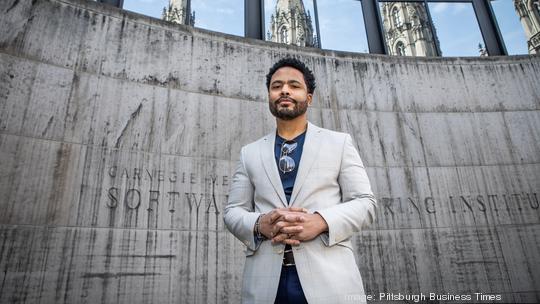
Attorney-turned-entrepreneur Martin Shepherd founded assessment, consulting and technology solutions company Arch Access Control in 2019 to better help small and midsize organizations manage and simplify their cybersecurity needs.
The seven-person team assists companies with understanding their current cybersecurity threats, identifies ways to secure systems and offers network management and access control services like firewalls and remote control desktop access.
The company initially launched with funding from Shepherd’s friends in the private equity sector but has since grown to need the funding support offered through venture capital, a route Shepherd is currently pursuing.
“In five years, I’d like to be able to say Arch made cybersecurity simpler and more accessible for small and midsize companies,” Shepherd said in March 2021. “I’m now working on a software platform designed to do that. But the challenge for any entrepreneur is funding. … I want to build something that will take this complex world of cybersecurity and make it accessible to a small business owner who may not have someone on staff, may not have the expertise and not know where to go.”
Ariel Precision Medicine


Ariel Precision Medicine Inc., founded in 2015 by CEO Jessica Gibson and Chief Scientific Officer David Whitcomb, is helping doctors treat patients with chronic health conditions through the use of its Advance Platform technology, an AI platform that can take genetic and clinical data and turn it into insights for the proper identification, management and advanced therapeutic development of various chronic health conditions. Its main focus is on identifying causes of digestive and metabolic diseases, starting with the pancreas.
The startup has received several accolades, placing multiple times in the Pittsburgh Technology Council’s Tech 50 competition, most recently as a finalist in the innovator of the year: life sciences category for 2021, and being ranked among Data Magazine’s 101 best bioinformatics startups and companies. In 2022, the company is looking to improve the efficiency and effectiveness of physician diagnosis and care plans in an effort it hopes will result in improved patient outcomes. It has raised about $8 million in funding so far from institutional investors, venture capital firms, patient advocacy groups and angel investors. The current employee count is at 25, 10 of whom work full-time at the company.
Gibson said the startup’s biggest goals for the next year include “(Scaling) our Advance Platform and accelerating the development of our Phase 2 asset for pancreatitis. … We are moving ‘beyond genetics’ into a place where genetics are a framework for understanding integrated risk, and we can model all of the other factors that can contribute to when a disease starts, how rapidly or severely it progresses and transform that data into insights to prevent or mitigate severe disease.”
Jetpack Workflow

Founded in 2015 by David Cristello, Jetpack Workflow is helping accountants and bookkeepers remain focused on current and future duties with ease through its software assignment system. The startup’s template builder features automation tools that can draft schedules, create lists and assign tasks in a user-friendly interface.
In 2020, the 15-person company had a 695% average three-year growth rate in revenue, ranking it as No. 676 in the nation as part of the Inc. 5000 list of fastest-growing private companies. It also has raised nearly $3 million in funding since its founding, the majority of which has come from AngelList syndicates.
“Next year we plan on releasing an alpha version of an entirely new workflow product that we think is going to bring every modern accounting, bookkeeping, payroll tax firm into the future of client work,” Cristello said. “That’s what we’re really excited about, just doubling down on research and development, building out a new product that we feel is going to define the post-Covid productivity of accounting firms.”
Koop Technologies
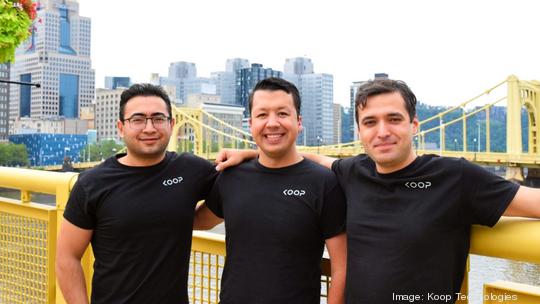
Koop Technologies, founded in the summer of 2020 by Jim Duan, Zak Gazizov, Kamron Khodjaev and Sergey Litvinenko, has developed an insurance platform for companies in the autonomous vehicle and robotics industries. The idea behind the platform is to better connect these companies with the insurance firms that represent them. Through various forms of data collection, the company combines technology and insurance offerings designed specifically for companies like autonomous-vehicle fleet operators or those using autonomous unmanned aerial vehicles.
The six-person team has raised $2.5 million in seed funding from several Silicon Valley venture capital firms, including Ubiquity Ventures, Bee Partners, Sure Ventures and WestWave Capital. It’s hoping to use the funding for the build out of its product and intellectual property as well as for the hiring of more employees. The company recently moved into space at Nova Place.
“With all these (autonomous developments) happening, insurance is an important piece of the puzzle as an enabler of the commercialization process because having autonomy insurance that is a fit for autonomy (and) is properly scalable is very important,” Khodjaev said. “Because machines don’t behave or make decisions the way humans do, the risk profiles are vastly different. Koop’s play is to be smart on AV technology and smart on insurance, bridging a critical gap and accelerating deployment.”
Mach9 Robotics
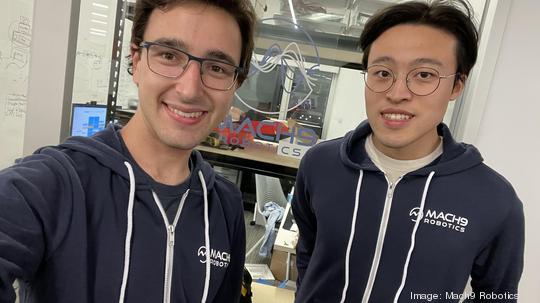
Alexander Baikovitz and Haowen Shi founded Mach9 Robotics in 2021 with the goal of making utility infrastructure inspections more accurate. By using robots to map surface and sub-surface areas, Mach9 is able to produce geospatial renderings of critical infrastructure — think gas and water lines — down to the centimeter and in a matter of minutes, a job that normally would take a city months to accomplish.
The five-person team was a part of Carnegie Mellon University’s VentureBridge initiative and has raised a total of $2.5 million in funding from Tiger Global Management LLC, Y Combinator, Soma Capital, Pathfinder Capital, Fitbit co-founder James Park, Quiet Capital and Liquid2 Ventures, among others. Over the course of the next year, Mach9 plans to deploy its robots across the country to identify and then prevent infrastructure problems before they happen.
“We’re really excited by the ability to just go out and create fully digital reconstructions of both things that humans can see and cannot see, and that’s really what we’re focused on for the next year is actually going to a variety of cities and actually creating these completely digital worlds that we can use to be able to help people make big decisions in minutes and not months,” Baikovitz said.
Refiberd
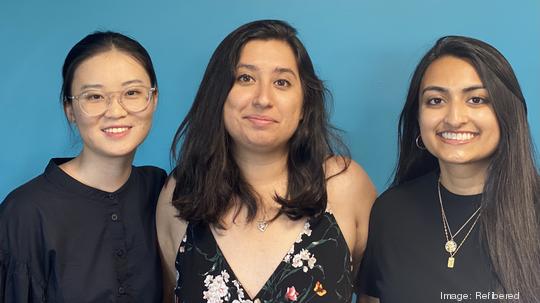
Launched in the midst of the pandemic in May 2020 by Sarika Bajaj, Tushita Gupta and Mingyue (Ida) Wang, Refiberd is using AI and robotics for a sorting system and patent-pending chemical recycling process that can repurpose former clothing and textile products into new reusable threads for future textiles.
Unlike the common plastics used for water bottles, the multiple types of fabrics used in modern textiles makes recycling them an expensive process, but with Refiberd’s technology, the startup is positioning itself to be a sustainable solution for the fashion industry that is capable of sorting textiles by material type with incredible accuracy.
The three-person team completed Carnegie Mellon University’s VentureBridge program and is currently a finalist in the Richard King Mellon Foundation’s inaugural social impact pitch competition, which has a top prize of $500,000. Refiberd claims it’s tackling an estimated $100 billion global textile waste problem, where 93 million tons of textiles are thrown away annually and only 1% of used textiles end up being recycled, a problem that exists partly because of the many different fabrics used in clothing products. With the company’s technology, the sorting of these types of materials becomes much easier and the amount going to waste is reduced.
“(Recycling) is so expensive that it’s not even worth it for brands,” Bajaj said. “We want to just pick up their bail of unsorted, mishmash textile waste, literally put it on our conveyor belt and that conveyor belt will then lead everything through our spectroscopy and AI set up that will then be resorted into different buckets and so that bucket then can be nicely wheeled away and enter our chemical recycling process. This year, we were able to raise our preseed round, which really facilitated a lot of this for us, but next year we’ll be trying to raise our seed round, which will really help with scaling.”
Shift Robotics
Shift Robotics, a startup founded in 2018 by Xunjie Zhang initially under the name of Nimbus Robotics, is creating robotic shoe attachments capable of allowing people to walk faster but without extra effort.
Users are able to apply Shift’s proprietary bionic devices onto a regular pair of shoes to experience the effect. The company says its tech is capable of letting people walk a mile in half of the time it takes while wearing normal shoes, a feat the company said is possible due to the device’s onboard control system that can detect an individual’s current gait to make real-time adjustments that enable an increased walking speed.
The startup expects to complete the final designs of the product before the end of the year, with an anticipated commercial launch in early 2022, though it’s currently still working out those details with an interested manufacturer. The 10-person team, seven of whom are full-time employees, has raised more than $1 million so far, primarily through angel investors.
“We’re very excited; we’ve been working on this for a while,” Zhang said. “We believe this is going to be a transformative experience, a mobility experience, unlike anything else that people have used before.”
ViralMoment

In August 2020, Carnegie Mellon University alumni Chelsie Hall and Sheyda Demooei founded ViralMoment, a social analytics startup with a series of software tools that can utilize AI to contextualize and understand what is in a video, image or audio content to help users identify emerging trends on social media platforms like Reddit and TikTok. By incorporating computer vision and AI, ViralMoment can read and see what is happening across potentially millions of videos at a time, deciphering symbols and movements and turning it into data points for further analysis.
Funding for the startup has come from CMU’s VentureBride, as well as startup accelerator Techstars Los Angeles. Most recently, the startup won $50,000 at a pitch competition during the Eradicate Hate Global Summit held at the David L. Lawrence Convention Center in October. It is looking to use the funding to make its tools and research more accessible for those who lack a data or analytics background.
“We’ve really found that it’s brands, agencies and media companies that this is really resonating with, but we’ve done demos to the Department of State and the FBI and so there are far-reaching uses with technology like this that enable people to know about things that are brewing in culture before they’ve emerged and become viral moments,” Hall said. “We’re targeting cultural leaders, whether that’s a brand, a government, an agency, who want to help understand conversations at a high level and set the tone for conversations.”
A previous version of this story had Jetpack Workflow's revenue growth rate listed at 964% over the previous year. The correct figure was 695% averaged over a period of three years, according to business publication Inc.



